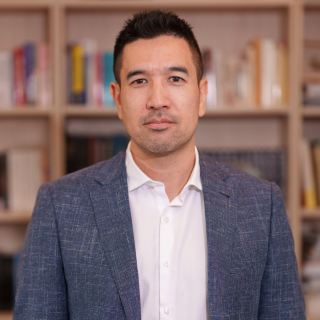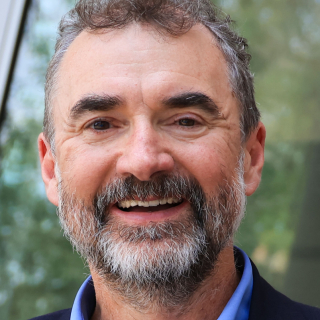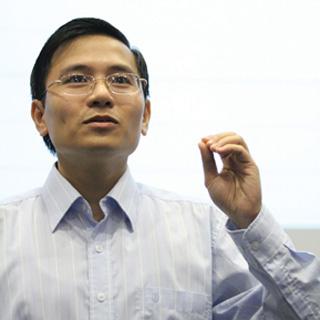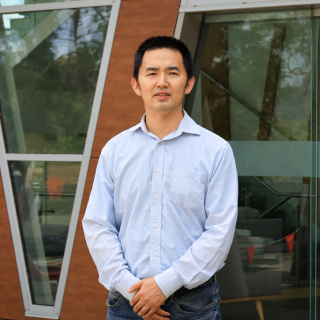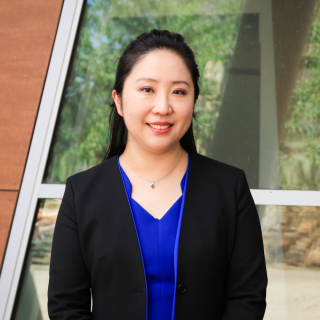Master of International and Development Economics
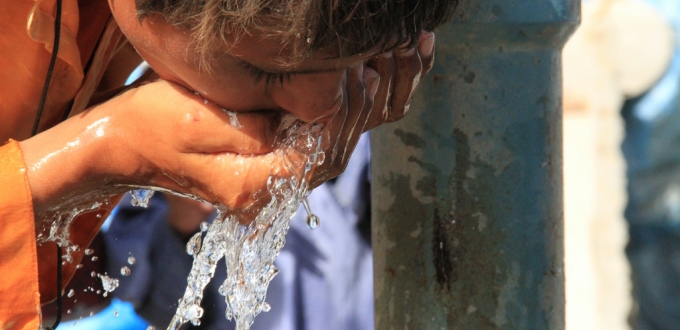
Overview
Study in-person or online
In 2025, all graduate courses offered by the Crawford School will be available for either in-person or online study. All students are expected to attend live sessions at particular times each week for their courses. Crawford online courses are not ‘study at your own pace’. International students studying on an Australian student visa should enrol in in-person courses.
Participation
Real-time interaction, discussion and debate between students and with convenors is a central part of the learning experience. Attendance at interactive classes is important for both on campus and online students.
Improve the impact of economic policies for trade, finance, development and the environment with advanced economic analysis.
- A degree designed to fast-track your career in key national economic departments and global institutions
- World-class training in applied economics and its use in policy-making
- Diverse choice of electives to provide pathways for specialisation
If your goal is to improve policy-making processes with advanced economic-analysis skills, then this graduate degree is for you. With world-class training in applied economics and econometrics, you will learn to apply key analytical frameworks to influence economic policies for trade, finance, development and the environment.
Through your choice of electives, you will have the opportunity to cultivate a distinguished and specialist skill set in the field of international and development economics. This will prepare you for worldwide senior policy officer and management roles.
The program offers five specialisations as follows:
- Development Policy: develop your analytical understanding of the economic principles and politics underlying development policies.
- Economies of Asia and the Pacific: acquire a comprehensive understanding of the economic, trade and development issues relevant to developing and managing long-term policy and programs in the Asia Pacific.
- International Trade and Finance: become equipped with advanced learning in trade and finance theory, together with applied quantitative analysis and the ability to interpret trade and financial data.
- Macroeconomic Policy: develop an advanced understanding of national and international macroeconomic policy, monetary and finance policy and central banking.
- Microeconomic Policy: develop an advanced understanding of microeconomic policy and evaluation. This specialisation will also provide students with the skills in econometrics.
Read our student story:
Turning passion into practice with Crawford graduate Hiroshi Maeda
Career options
When you graduate, you’ll be well-equipped to secure senior leadership and management roles in research and policy analysis in Australia and overseas. Our graduates have won prominent positions with universities, national and international policy agencies, leading national and multinational corporations, and civil society organisations.
Application Deadlines
Please note application deadlines are different for domestic and international students.
Domestic students
This program is with pre-sessional program (PSP) component for domestic students.
• Semester 1 2025 intake:
Application closing date: 15 Dec 2024
Acceptance date: 3 Jan 2025
Start date: 13 Jan 2025
• Semester 2 2025 intake:
Application closing date: 31 May 2025
Acceptance date: 1 June 2025
Start date: 12 June 2025
International students
Find ANU’s general application and acceptance deadlines by visiting the webpage linked here.
Key dates for application:
• Semester 1 2025 intake for private applicants:
Application closing date: 31 Oct 2024
Final acceptance date: 1 Dec 2024*
Start date: 13 Jan 2025
• Semester 1 2025 intake for scholarship/partnership applicants:
Application closing date: 15 Dec 2025
Final acceptance date: 3 Jan 2025*
Start date: 13 Jan 2025
• Semester 2 2025 intake for private applicants:
Application closing date: 15 April 2025
Final acceptance date: 15 May 2025*
Start date: 12 June 2025
• Semester 2 2025 intake for scholarship/partnership applicants:
Application date: 15 April 2025
Final acceptance date: 15 May 2025*
Start date: 12 June 2025
*Some students may need to accept well before this date to allow for visa processing times in their country.
For study in person, view the full program structure, admission requirements and academic information.
For study online, view the full program structure, admission requirements and academic information.
To find out more, contact us at crawford.degrees@anu.edu.au today.
Degree structure
Duration
1-2 year/s full time depending on credit
Admission requirements
A Bachelor degree or international equivalent with a minimum GPA of 5/7. Or, view alternative requirements by clicking the link here.
Credit
Applicants with a Bachelor’s degree or Graduate Certificate in a cognate discipline may be eligible for 24 units (one semester) of credit.
Applicants with a Graduate Diploma or Honours in a cognate discipline may be eligible for 48 units (one year) of credit.
Credit may also be available for relevant work experience.
Cognate disciplines
If you have prior study in one of the following cognate disciplines, you may be eligible for credit towards your degree:
Applied Economics; Econometrics; Economic Policy; Economics; Engineering; Mathematics; or Statistics.
Shape your degree
Students can choose from a wide variety of courses offered by the economics program, the public policy program at Crawford School, and other parts of ANU. By choosing particular courses, students can create their own professional focus. Courses can be combined across different professional focus and there are many more electives available.
View the detailed degree program structure, admission requirements and academic information.
Academics
Shiro Armstrong
Director, Australia-Japan Research Centre; Director, East Asian Bureau of Economic Research; and Professor, Crawford School
Contact details
Paul Burke
Professor; Head, Arndt-Corden Department of Economics; Deputy Director, Crawford School of Public Policy
Contact details
Quentin Grafton
Professor and Laureate Fellow; Chairholder UNESCO Chair in Water Economics and Transboundary Water Governance
Contact details
Warwick McKibbin
Distinguished Professor and Director, ANU Centre for Applied Macroeconomic Analysis (CAMA) in the Crawford School of Public Policy at the Australian National University (ANU)
Contact details
Hoa Nguyen
Associate Professor; Editor of Asia and the Pacific Policy Studies; Editor of PLOS ONE; Editor of ANU Press on Public Policy;
Contact details
Toan Nguyen
Lecturer and Research Fellow – Development Policy Centre
Contact details
Room: +61 2 6125 3826
Budy P Resosudarmo
Professor, Arndt-Corden Department of Economics; Head, Indonesia Project
Contact details
News
- ‹ previous
- 2 of 10
- next ›
Scholarships and fees
Scholarships and support
Scholarship opportunities are available for national and international students.
Fees
Costs associated with your study at ANU will depend on a number of things, including your study program and whether you’re a national or international student.
Find out more about costs and fees associated with studying at ANU.
Updated: 4 December 2024/Responsible Officer: Crawford Engagement/Page Contact: CAP Web Team









